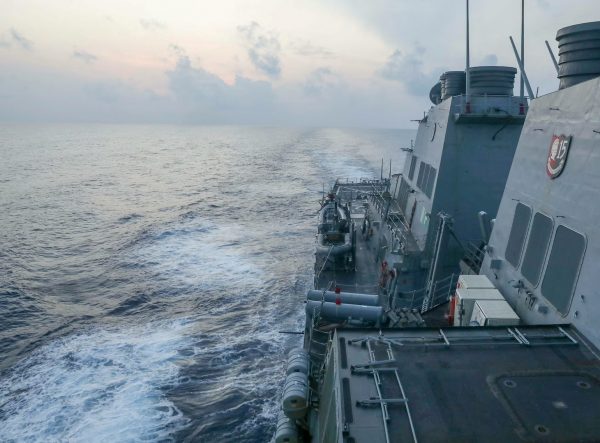Marcos Jr surprised his critics and disappointed Duterte’s allies when he steered the country away from Duterte’s China appeasement strategy. Duterte had previously downplayed the 2016 Permanent Court of Arbitration ruling that rejected China’s expansive claim in the South China Sea under the UN Convention on the Law of the Sea.
Marcos Jr instead stated that he will not surrender Philippine territory to any foreign power and will use the arbitration ruling to assert the Philippines’ territorial rights. When Chinese ships harassed Philippine Coast Guard vessels on their way to deliver provisions to a Philippine military outpost in Ayungin Shoal in February 2023, Marcos Jr filed a diplomatic protest.
Marcos Jr also cooperates with other regional allies — particularly Japan and Australia — to counter Chinese intimidation. Marcos Jr has agreed to host a larger US military presence in the Philippines. In April 2023, the Philippines and the United States will conduct a Balikatan exercise involving 17,600 military personnel. These annual war games demonstrate Manila’s determination to improve readiness to defend its territory. They also exhibit the United States and its allies’ commitment to supporting and defending the Philippines.
The Philippines’ security interests are intertwined, now more than ever, with those of the United States and its allies. Considering China’s aggressive actions in the South China Sea, the Philippines’ territorial integrity is well within the interests of the United States and its regional allies. Allowing China to continue its unlawful incursions into Philippine territory undermines a Free and Open Indo-Pacific. Almost a third of the world’s shipping goes through the South China Sea, making it one of the most important maritime waterways and trade routes in the world.
Marcos Jr’s defence balancing has wide implications. Not only does the balancing advance the Philippines’ territorial integrity and national security, but it also puts the Philippines in a vital position in preserving global stability. The United States’ active defence of Philippine territory can deter China from forcing its claim in the South China Sea. The United States is also bound by the Mutual Defense Treaty to defend the Philippines from foreign attacks.
A re-energised Philippines–US alliance also enhances the security of Taiwan, which sits on top of the northern border of the Philippines. Taiwan is a world leader in semiconductor production and has a virtual monopoly on microchip manufacturing. A Chinese assault or blockade in Taiwan would cripple the global semiconductor supply chain and could lead to catastrophic consequences in global economics and security.
This is not the first time that the Philippines has invoked the US alliance to thwart China’s aggressive actions. The late former president Benigno Aquino III also sought US support to defend Philippine territory and filed the arbitration case against China in 2013. Icy relations between Beijing and Manila followed. Beijing had no qualms at the time about threatening economic punishment for the Philippines’ stance.
Marcos Jr is in a fortunate position. He does not carry the weight of challenging Beijing in an international court and can cooperate with China in other areas to soften the impact of his security policy. By preserving the Philippines’ diplomatic relationship with China, while strengthening ties with the United States and regional allies, Marcos Jr is performing a delicate balancing act. This strategy is the optimal policy for the Philippines, considering the country’s current security and economic reality. Policies to protect the country’s territory and the Filipino people from external aggression are a matter of national priority.
It is logical for the Marcos Jr administration to seek the support of its trusted security allies to augment and modernise the Philippines’ inadequate military. At the same time, given the importance of China as the Philippines’ top trade partner, diplomatic and economic links with Beijing must be carefully nurtured through dialogue and cooperation. Through the strategic use of deterrence and engagement, the Philippines can maximise gains and minimise losses from superpower competition.
The sustainability of Marcos Jr’s balancing act will ultimately depend on both domestic and external conditions. China will wave tempting offers and even threats that are difficult to refuse, and the Marcos Jr administration’s will and ability to resist the carrots and sticks will be a decisive factor in the future of the Philippines’ relationship with China.
The future direction and sustainability of the Philippines’ balancing act will depend on China’s behaviour in the contested waters of the South China Sea, how US allies’ Free and Open Indo-Pacific strategies evolve and whether allies can provide the domestic needs to lessen the Philippines’ dependence on China.
Jenny Balboa is Lecturer at the Tokyo University of Foreign Studies and at the Department of Global and Interdisciplinary Studies, Hosei University. Her latest book is Policy Innovation in a Weak Democracy: AFTA Implementation and Trade Liberalization in the Philippines, 1986–1998 (Ateneo De Manila University Press and Kyoto University Press, 2023).

